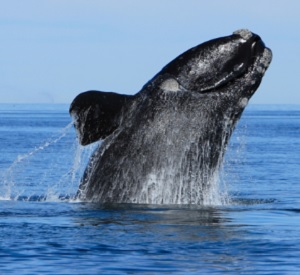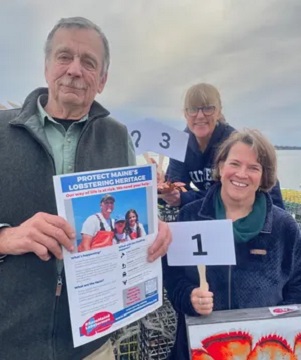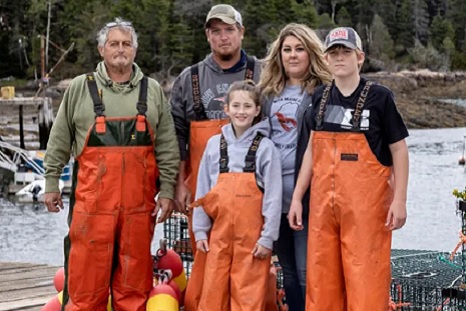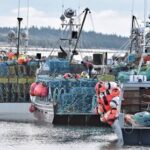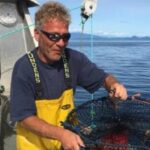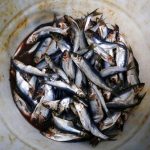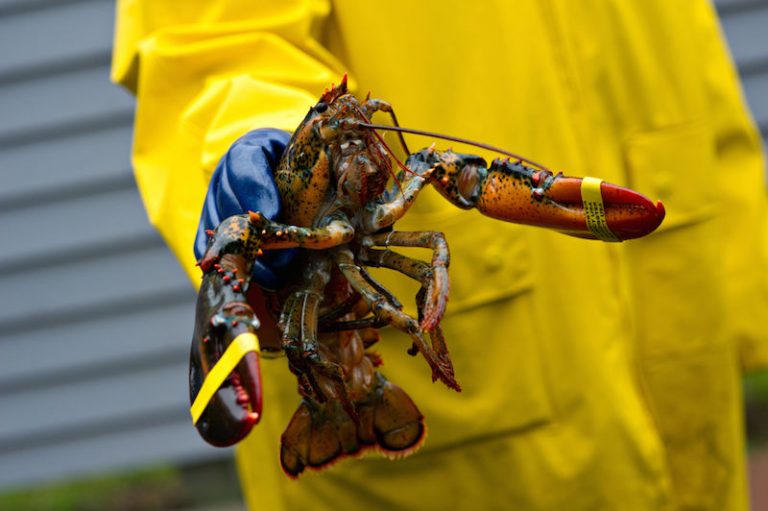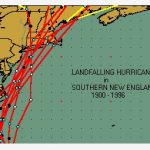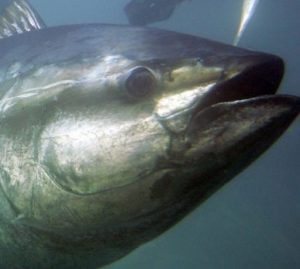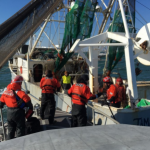Tag Archives: North Atlantic right whale

Federal court hears arguments from Maine lobstermen appealing right whale regulations
A federal appeals court heard arguments Friday from the Maine Lobstermen’s Association, which is challenging a government plan to regulate the fishery and conserve endangered right whales. The Maine Lobstermen’s Association had promised to take its latest appeal of federal fishing regulations all the way to the U.S. Supreme Court, if necessary. But lobstermen hope they’ll avoid that prospect, especially with Paul Clement, an attorney with more than 100 past Supreme Court appearances, representing Maine. >click to read< 07:22
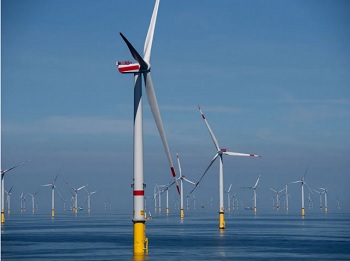
Whale deaths exploited in ‘cynical disinformation’ push against wind power, advocates say
Efforts to stop wind turbines off the Atlantic coast have a new mascot: the whale. A dozen New Jersey beach town mayors and several other groups now argue offshore wind power activity could be the cause of recent whale deaths and wind projects must be stopped while scientists investigate. But those most vocal about their concern have been silent in recent years as whale strandings surged along the East Coast. Wind energy supporters and whale advocates say these groups and politicians appear to be using whales as pawns. >click to read< 10:17
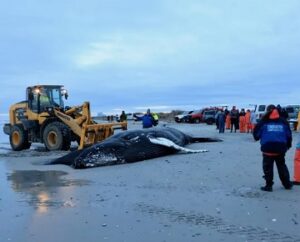
2 whales found dead along Atlantic Coast were likely hit by boats, NOAA says.
Necropsies on two whales found dead along the Atlantic coast this week revealed that both marine mammals showed evidence of vessel strikes. Both whales, a critically endangered North Atlantic right whale and a humpback, were already beginning to decompose, but preliminary results show internal injuries consistent with the blunt force trauma of a vessel strike, the National Oceanic and Atmospheric Administration said Tuesday. The deaths are among a flurry of 21 whale deaths along the length of the Atlantic coast since Dec. 3. >click to read< 09:20
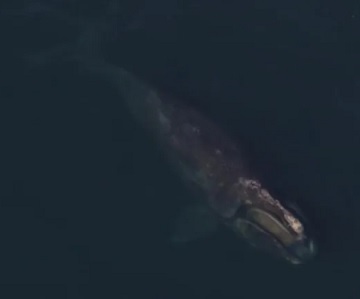
Right whale found entangled in Canadian lobster fishing gear in U.S. waters
A right whale found entangled in lobster fishing gear in waters off the southern United States was disentangled by U.S. marine mammal rescue responders last weekend. An investigation by U.S. officials and Fisheries and Oceans Canada has determined the gear was from Lobster Fishing Area 33 in Southern Nova Scotia, according to a DFO release. The adult whale is identified officially as North Atlantic right whale 1218 and known as Argo. According to the release, it is the first entanglement connected to Canada’s lobster fishery in five years. The release said the harvester reported the lost gear to DFO. >click to read< 17:58
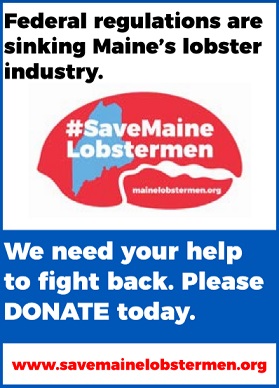
MLA back in court this month over federal lobstering rules
The Maine Lobstermen’s Association continues its court fight against the National Marine Fisheries Service, challenging its biological opinion for the endangered right whale, released in May 2021, and the science used to inform it. The MLA lost its original lawsuit in Sept. 2022 but was granted the right to appeal. Oral arguments are scheduled for Feb. 24 in the U.S. Court of Appeals in the District of Columbia. The Maine Department of Marine Resources and the Maine Lobstering Union Lodge 207, the Massachusetts Lobstermen’s Association, are intervenors in the case. “[The six-year delay] just really amplifies the concerns that the MLA has had,” MLA executive director Patrice McCarron said. “It highlights and exemplifies the importance of the work we’ve done and the importance of letting the lawsuit run its course.” >click to read< 09:23
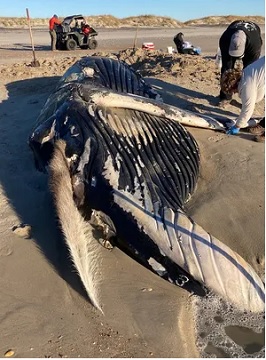
Whale deaths in NC and along the East Coast have officials searching for answers
On Jan. 7, a critically endangered North Atlantic right whale calf was found dead, wedged under a pier in Morehead City. In the previous month, three humpback whales washed up on beaches between Beaufort and the northern Outer Banks. The four North Carolina deaths are part of at least 14 whales that have washed up on East Coast beaches since Dec. 1. Federal officials, scientists and conservation groups have said there could be multiple factors contributing to the rise in whale strandings, including an increase in the population of the Western North Atlantic humpback whales. But one idea that’s gained traction online and among some coastal residents and politicians is that huge offshore wind farms planned off many East Coast states, including North Carolina, could be harming the marine mammals. >click to read< 08:46
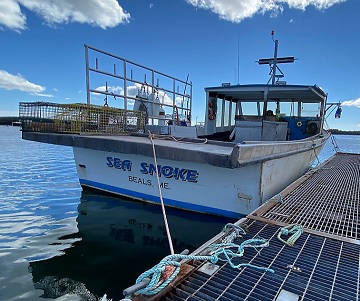
Maine lobster industry must accept that ‘big changes are coming’ despite delay in federal rules, commissioner says
“The work now is critical,” DMR Commissioner Patrick Keliher told the Lobster Advisory Council Wednesday. “The buy-in is critical. The data we’re going to be collecting over the next four years is critical. We can’t have infighting. We have to accept big changes are coming. ”Those changes could include additional regulations to make ropes weaker, a move toward ropeless lobster traps and additional restrictions on fishing grounds. Between now and then, the industry needs to report its harvest to federal officials, participate in a vessel tracking program and find ways to help monitor where endangered whales are migrating, Keliher said. >click to read< 08:49
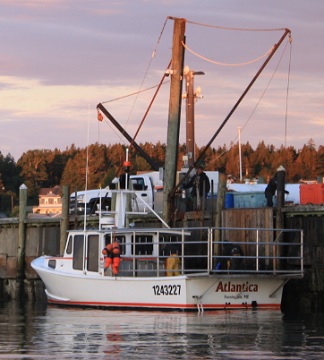
Maine wants to transform how the US manages the lobster fishery.
Patrick Keliher, Maine’s Department of Marine Resources commissioner, has argued that the fishery needs more “tools in the toolbox.” Now, with the most time he’s had in recent memory to sit down and craft new measures, he is hoping that the dawn of “dynamic management” in Maine is here. What is dynamic management? In theory, it’s a simple strategy to keep fishermen fishing, while also making way for whales. The Gulf of Maine would be monitored, with listening devices in the water and planes in the sky, for right whales. If signs of right whales are detected, fishermen would have to clear their traps out of the area. Dynamic management has been pitched by Maine before, and a version of it is being used in parts of the Canadian snow crab fishery. >click to read< 14:35
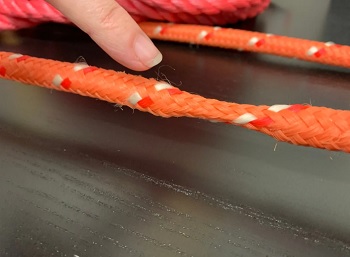
P.E.I. fishermen welcome extension on deadline for gear to protect whales
Some members of the P.E.I. fishing community are welcoming DFO’s decision to extend the deadline for break-free fishing gear until 2024. This is when fishers will be required to use gear designed to break under 1,700 pounds to help species like the endangered North Atlantic right whale escape during an entanglement. “I mean, we’re certainly happy to see it extended,” said Marvin Jollymore, a lobster and eel fisher from New London, P.E.I. “There’s so many questions as to, you know, how long does [the gear] last? You put it in, does it last one season? Does it last two seasons, does it last forever? Is it only good for half a season?” >click to read< 07:59

Scientist calls 6-year delay in Maine lobster rules ‘mind-boggling’
Scientists dedicated to saving North Atlantic right whales from extinction say they are optimistic they can work with the fishing industry to save the species. But they were blindsided last month when Maine’s congressional delegation put language in the federal budget to delay for six years regulations that are designed to protect the whales. Amy Knowlton, a senior scientist at the Boston-based New England Aquarium, said the impact of a six-year delay in regulations could be “dramatic.” “It’s mind-boggling that this would be allowed to happen,” she said. But the Maine lobster industry has fought hard against new regulations designed to protect the whales, saying lobstermen aren’t to blame for the whales’ continued decline. Backed by Gov. Janet Mills and the state’s congressional delegation, the industry won a major victory with the six-year delay. >click to read< 15:20

Lobstermen welcome reprieve on new federal fishing rules but wonder what comes next
The last-minute rider on the federal budget is an unexpected gift to lobstermen and the fishing industry, the kind that can’t be wrapped with a bow and placed under a holiday tree. But for some local lobstermen, the regulatory pause is just a pause, and one more link in the federal chain of regulations targeting lobstermen over right whale entanglements. But Hancock lobsterman and Zone B Council member Zachary Piper said he still gave a sigh of relief at the news.“I gave a sigh of relief, but there’s way more to come,” he continued. “Until they get science to figure out what’s going on and not hide behind an agenda, we’re going to be fighting the same things. This is just a relief from that.” >click to read< 07:46

Green Groups Ignore Genuine Risks To Whales From Offshore Wind Farms
Environmentalists want to crack down on the Maine lobster industry in the name of protecting endangered whales, but they turn a blind eye to the greater threat to whales from proposed offshore wind farms. The irony is almost as delicious as the lobster dinners at stake. Green groups such as the Center for Biological Diversity and Defenders of Wildlife routinely target commercial fishing by claiming that it causes ancillary harm to marine species protected under the Endangered Species Act and other federal laws. This includes the North Atlantic right whale, whose population of only 350 or so migrates up and down the Atlantic Coast and can cross prime lobster territory off New England. >click to read< 11:52
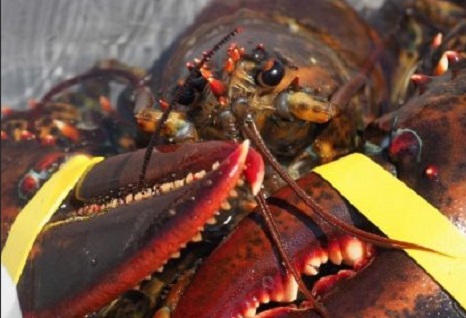
Biden’s Latest Green Energy Victim: The Lobster Industry
One of President Joe Biden’s most disgusting “Nero fiddles while Rome burns” moments came when he hosted his first state dinner for visiting French President Emmanuel Macron. While the president and his guests gorged themselves on 200 live Maine lobsters poached in butter, his administration did everything it could to regulate the Maine fishing industry, particularly lobstermen. out of existence. And they’re making the fishing industry a scapegoat for the actual peril lurking in the waters off New England — offshore wind farms. >click to read < 15:04
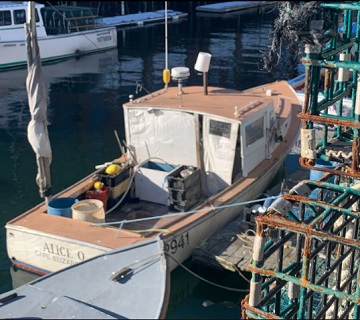
Zero means zero. ‘We’ve been innocent:’ Federal spending bill could provide lifeline for Maine lobstermen
Tuesday, Maine’s congressional delegation moved to block plans for even stricter federal regulations on Maine lobstermen designed to protect the right whale. If approved, the measure would give the U.S. lobster fishery six years before any further action is taken to prevent fishing gear from entangling whales. Lobstermen say there’s no need for new regulations on them, claiming there’s no evidence whales are getting snared in their gear, but environmentalists say this puts right whales on a path to extinction. “Zero means zero. I mean, we’ve had zero entanglements in the last 20 years,” Knight said. “There’s never been a death attributed to Maine lobster gear. We’ve been innocent right along.” Video, photos, >click to read< 09:20

Wind industry group says turbine restrictions for whales could threaten commercial viability of projects
An organization that represents and lobbies for the wind industry has warned that a recommendation from federal scientists to limit turbines in offshore lease areas to protect the endangered North Atlantic right whale could threaten the commercial viability, efficiency and utilities contracts for some projects. In a letter first published by The Light last month, NOAA scientist Sean Hayes proposed establishing a “conservation buffer” zone or turbine-free area overlapping with wind development planned in Southern New England. But the American Clean Power Association (ACP), which represents the wind industry, said such a buffer would cause the removal of a “significant number” of turbines from several projects. >click to read< 07:29

Maine Lobstermen’s Association Statement on Omnibus Appropriations Bill
12/20/2022 -Today, U.S. Senators Susan Collins and Angus King, Representatives Chellie Pingree and Jared Golden, and Governor Janet Mills announced that they were successful in securing a regulatory pause for Maine’s lobster industry in the Omnibus funding package that is expected to pass the Senate and House this week. Following is a statement from Patrice McCarron, Executive Director of the Maine Lobstermen’s Association: “The Maine Lobstermen’s Association (MLA) is encouraged that Congress recognizes that the federal rulemaking process intended to protect right whales is broken. Please >click to read the statement< The comment section is open.16:09
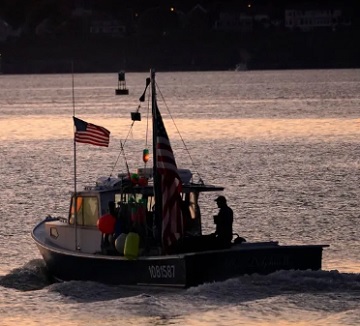
Maine delegation adds 6-year pause on lobster rules to federal spending bill
Maine’s congressional delegation has inserted a six-year pause on new regulations intended to protect endangered right whales into a key federal spending package as it seeks to protect a lobster industry that says it is under siege. The provision will help a vital Maine industry that had been hit with too many regulations despite its lack of threat to the endangered whales, Sens. Susan Collins and Angus King, Reps. Chellie Pingree and Jared Golden and Gov. Janet Mills said in a statement. The late-breaking move comes just days before Congress is expected to approve a massive $1.7 trillion spending bill that would fund the government through next fall. >click to read< 13:34

Maine political leaders push provision in federal spending bill decried by environmental groups as threat to right whales
Members of the delegation, including US Senator Susan Collins, said they plan to push a provision in the spending bill that would revive for 10 years federal fisheries rule that environmental groups successfully challenged in court earlier this year. Congressional leaders announced a framework for the spending legislation last Tuesday, and plan to use the days before Christmas to finalize details. In a letter Friday to Democratic congressional leaders, 15 environmental groups urged lawmakers to leave the language out of the spending bill. “This is a profound and disturbing end run around the legal system,” said Erica Fuller, senior attorney for the Conservation Law Foundation in Boston, on Saturday in a phone interview. >click to read< 07:44

Offshore Wind Farms in New England Create Headaches for Both Man and Beast
“I don’t think ever in history has there been such a massive alteration of the ecosystem in such a short amount of time,” says the executive director of New Jersey-based Clean Ocean Action, Cindy Zipf. “We’re looking at 3,500 turbines as tall as the Chrysler Building, 2.2 million acres of ocean, and 10,000 miles of cable just in the Northeast in just the next seven years.” At the center of the conflict is the North Atlantic right whale and other endangered marine mammals that the Commerce Department’s National Oceanic and Atmospheric Association National Marine Fisheries Service are charged with protecting. Fewer than 350 right whales are left in the Atlantic Ocean, according to the fisheries service. >click to read< 08:14

Sen. Susan Collins Moves to Block Stricter Rules Protecting Endangered Whales
Senator Susan Collins is pushing for a provision in the massive government funding bill that could further endanger the already precarious North Atlantic right whale. In July, a federal judge ruled that a 2021 regulation from the NOAA, which established new requirements for lobster traps in an effort to reduce the risk of those traps entangling and harming or killing whales, didn’t go far enough. The judge has since given federal regulators until 2024 to come up with what are expected to be even stricter rules to safeguard the imperiled whale. Collins’ provision, which has not yet been introduced, seeks to block those regulations and cement the 2021 rule for a minimum of 10 years. >click to read< 09:21
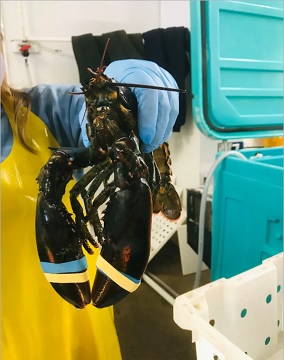
How do you show a lobster some love? A Cape Breton researcher has plenty of ideas
Michelle Theriault, a marine biologist at Université Sainte-Anne, tells her students to heap loving care on lobsters destined to markets in Auckland and Athabasca – and everywhere in between. So, how do you dote on lobsters? I dropped in on one of Theriault’s Zoom classes for lobster exporters to get some answers to that question. And while she was narrow-casting her class from the University’s Marine Research Centre at Petit-de-Grat, Cape Breton, lobster fishers were headed to sea to dump their traps on the opening day of the winter season south of Halifax. >click to read< 16:22
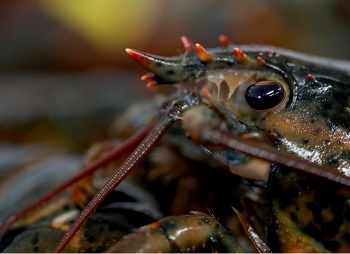
Lobster more than a Maine event
The headline said that Whole Foods would no longer be selling Maine lobster in its stores. My first reaction was to wonder what the lowly, although expensive crustacean had done to warrant such action from Whole Foods usually described as an upscale grocery chain that is owned by Amazon and as such is a part of the Jeff Bezos’ empire. To add insult to injury the California based Monterey Bay Aquarium through its environment focused seafood watch went and “red listed” Maine lobsters. I guess that means shipments of Maine lobsters will be stopped at the California border. I wonder if that includes the border with Mexico where just about anything gets through? Obviously, the Maine lobstering industry is up in arms over all this. >click to read< By Thomas Kirkpatrick Sr 12:56

Maine Republicans want to end tax breaks over lobster bans
Legislation expected to be filed by the GOP minority for consideration in the next session would prevent Whole Foods, or other groups that ban lobster sales from getting tax breaks available to Maine businesses. Last week, Whole Foods announced plans to stop selling lobster caught in the Gulf of Maine at hundreds of its retail stores across the country. During the Tuesday briefing on the proposal, Republican lawmakers framed the issue as one of survival for the state’s storied lobster industry, which they say is struggling amid labor costs, foreign competition and costly federal regulations aimed at preventing whales from becoming entangled in fishing gear. >click to read< 14:54

Walton: Maine lobsters — a coast to coast dispute
Some years back I wrote about my distaste for seafood. If it swims in our oceans or lakes, I don’t eat it. To my surprise, many readers acknowledged they feel the same. So perhaps they are as shocked as I am that I rise to the defense of the Maine lobster industry, which finds itself on a prominent and respected environmental “watch” list, threatening thousands of jobs up and down the Maine coast. Why should a guy who prefers a good burger care? >click to read< 08:19

Canada, U.S., Mexico to vote on investigation into U.S. efforts to protect right whales
A complaint, filed under the new North American free trade agreement, will force Canada, the U.S., and Mexico to pass judgment on efforts by the United States to protect North Atlantic right whales. “We recommended an independent investigation. We are looking forward to hearing a response and the position from the governments,” Paolo Solano, legal director for the Commission for Environmental Cooperation, said in Halifax this week. The commission is mandated under the Canada-U.S.-Mexico Agreement (CUSMA) to investigate claims a country is failing to effectively enforce its environmental laws. Last year, an American environmental group, Oceana, filed a complaint against the United States about protections for the North Atlantic right whale. >click to read< 07:51

Maine lobsterman blasts Whole Foods over lobster ban
A Maine fisherman slammed Whole Foods’ decision to stop selling Maine lobsters in its stores on Monday, calling on the grocery chain executives to do their “homework” before writing off the livelihoods of hundreds of lobstermen. In an appearance on “Jesse Watters Primetime” Monday, Maine lobsterman Jason Lorde denounced the decision, arguing that no right whale has died due to Maine lobster gear and that the fishing community in the state has long complied with laws and regulations to protect right whales. “I think Whole Foods maybe should have done a little more homework,” Lorde said. “We have been in business for over 150 years, and we have done our due diligence. We were conservationists before conservationists was cool. I’m sorry they felt they had to jump on the bandwagon with all the rest of the West Coasters.” Video, >click to read< 10:22
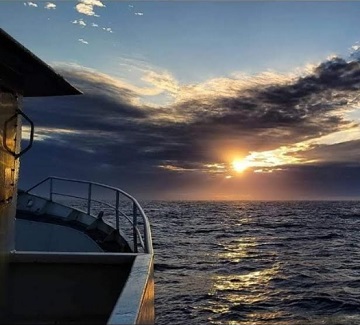
Jerry Leeman: Fishing is my life. Somewhere, people forgot to listen to the generations before us.
I’ve spent all my life on the ocean. My family and friends are fishermen and lobstermen. I grew up on an island in Maine and almost everyone was in some form of fishery, whether it be groundfishing, gill netting, seining and lobstering. We even had shrimping till that was mis managed away. I grew up watching these men and women harvesting the ocean. Rules were put into place to harvest the ocean responsibly and sustainably for future generations. Most people in this nation know little to as of why our fish stocks became depleted. Other nations like Russia and other European super trawlers were allowed to pillage our waters along the New England coast. They were eventually banned, but the destruction had been done. We’ve spent years restricting ourselves fishing, going out of our way bending backwards to rebuild our fish stocks. >click to read< By Jerry Leeman 11:19






